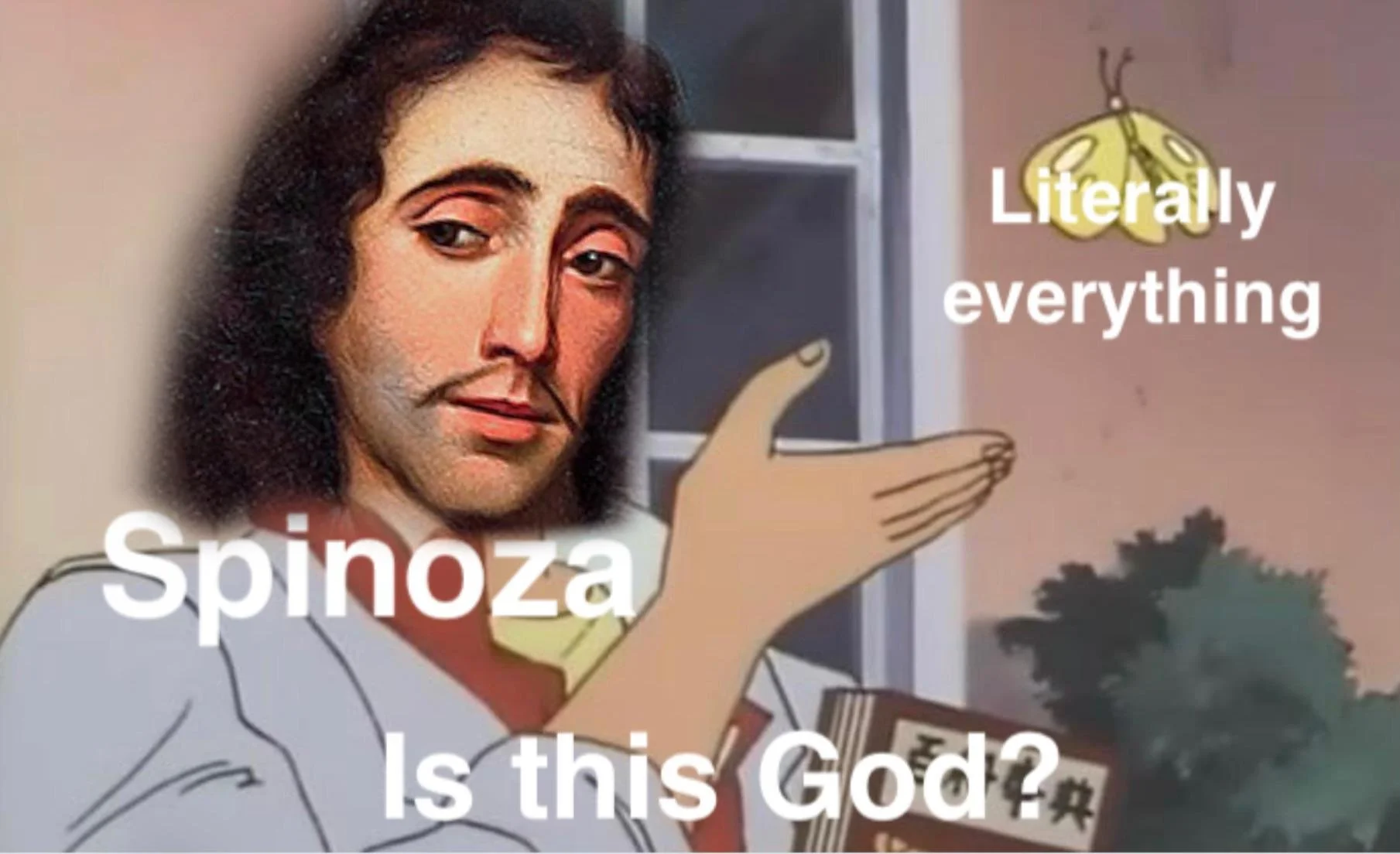Prophecies and Promises: Christ, the bridegroom, and the women at the cross - Triduum 2025
Mark puts it so poetically that the women were watching from a distance (Mark 15:40). The distance written into this story, inspired by the Spirit, calls to mind the distance between now and the primordial past. The women gazed into this distance, perhaps not knowing that what they witnessed here, what they followed to Calvary, was a promise being fulfilled.
A prayer for my speech and debate team.
…so that when we are called upon to do so, we may preach the Gospel with courage and steadfast faith in our Lord, Jesus Christ.
Our little God of little things — a Christmas reflection.
Clearly, even in all of creation, God’s eyes are not only on the sparrow, but even on the humble donkey. Not more than a beast of labor, it holds the attention of God’s eyes. God indeed raises up the lowly in this way, even the beasts. So it is unsurprising that God chooses to make his way into the world on the back of a donkey as well. What an honor it must have been for that animal to have borne on its back the king of all creation!
Agápe: a reflection on Christian charity and the disinterestedness of communion
That latter point is important. What does it mean to love others in the same way we are asked to rely disinterestedly on God? If I can indulge myself in borrowing ideas from my go-to philosopher Emmanuel Levinas, the responsibility that originates from an “immemorial past” in the face of the Other is analogous (or perhaps synonymous, if we take Jesus at his word in Matthew 25:40-45) to the relationship of responsibility towards the demands of God.
Christian charity is grounded in obedience to the law of love that emerges from the particular face-to-face relationship with another. For Levinas this otherness contains a trace of the divine; for the Christian, it is the face of God. Penance is reconciliation then, both turning a person back to God and likewise does turning them back and reorienting them towards other individuals.
“Woman, here is your son.” : A reflection on motherhood and the cross.
The same faithful obedience that St. Paul describes in his letter to the Philippians in reference to the death of Jesus is presumably the same faithful obedience that Jesus learned from witnessing the faithfulness of His mother. In fact, I cannot help but imagine that the Jesus we know from the Gospels was formed in His perfect humanity by the perfect faithfulness of His mother, Mary. In my mind, this motherhood was both the necessary and good foundation for our salvation, and prefigures and sets up the beautiful character of Jesus whose humanity and personhood catalyzed and enabled the divine work of salvation.
Excess and Violence: Thinking with Levinas on Heidegger, time, need, and subjectivity
War we have seen not only forces us to rethink our relationships with others and ourselves and the world at large, but it illuminates a natural state of things, bare of the positive affects of care and concern that extend beyond ourselves. As Levinas hints, care of the other reveals to us the possibility of our own vulnerability, and this vulnerability I think allows us to rethink an engendered and primal fear of death that not only abides in our subjectivity but is present by virtue of the external, phenomenal, and evanescent world we live in.
Spinoza’s God, and the need for religion.
It must be the case then that if one’s very existence strives to continue to exist and nothing to the contrary, then it must be the case that if one is to also want that for another, and that it is essential that this desire be coupled with an idea, then the proper desire for others must be accompanied by some idea that the shared first cause that makes both one and another worthy of continued existence must have some inherent moral value that transcends the finitude of nature.
On Vocation and the Sublime: Mysticism and Pneumatics for a Modernity in Crisis
When we find ourselves mired in injustice, and so deeply buried in systems that overwhelm our capacity to break free from injustice, and systems that often have us complicit in them such that we find ourselves helpless or feeling unworthy, the way out is to bear the burden of responsibility for others.
Levinas’ Pessimism and the Need for Necessity
…this philosophical ambivalence towards some idea that death signals some transition to a life beyond this one resonates with the commonly held Jewish position that religion is not purposed for a life beyond this one; that whether or not the soul survives this life is not relevant to any notion of ethics. Unlike Spinoza whose philosophy depends crucially on the belief that in some capacity the soul is eternal, Levinas insists that it is unimportant, and that ethics – if ethics is somehow or another construed as a way towards a good life – is about making do with what we have and what we are, not with what we might have or what we could be.
Eros, and the search for what is perfect: Plato on the philosophical value of erotic experience
To care for the other and to desire the other proves to be a way to be directed towards knowledge of the Good, but again, as we see in Aristophanes, the attainment of that Good always falls short, and we always again find ourselves searching for more. Aristophanes tells us of how this love is overwhelming and how it fills the lovers with “affection [and] concern.”
Gluttony: on resource, exploitation, and the excesses of freedom
Today, we know that food precarity is on the rise across the globe. Arguments point to all sorts of “-isms” which are at fault for what can be described as disruptions of our food chains making the demand for nourishment grow while supply tether on the brink of austerity. Whether it is capitalism, socialism, globalism, industrialism, or what have you, and whether the inflated demand is orchestrated or austerity the product of artificial scarcity, the need for food is real and the precarity many families are facing on account of the inflated cost of food and the very real and unavoidable demands of hunger highlight not only man’s dependence on the things of this world, but how certain responses to this need can become so ingrained in our culture, that the -isms which allocate our resources become habit to us, and these forms of consumption and labor which produce such scarcity are no more than the mechanisms of a maladapted need which center on the logic of egoism.
Being from the World: Levinas on the priority of freedom, and the cost of ethics
While Levinas would be enthused about a philosophy which decidedly positions others as necessary for the wellbeing and life of the self, he would also caution that unlike air, water, or the fruits of the Earth, other people have within themselves lives of their own, needs of their own, desires, wants, hopes and dreams of their own and who are, like us, worthy of protection and the insurance of the same freedom afforded to ourselves by our very nature. It is this unknowable interiority of the other which subjects us to a responsibility that asks us to skirt our freedom; to relinquish a tiny bit of our carefree abandon with the world to protect the needs of another.
To Kill a Child and the Loss of the Sacred
Only once we see the divine in all things can we understand true justice and true peace. Only when we can see the infinite in the face of the Other – or at least in the face of a child – can we truly know what to do or how to be to stop this senseless killing.
Spinoza: on the necessity of faith and a new religion
Rather than thinking of religion as something which imposes itself upon man from the outside, Spinoza offers us a new way of seeing faith as that which inspires good behavior from within ourselves, and that it is the endless contemplation of the most expansive of thoughts – that is, to think adequately what one might intuitively think is the most unthinkable thought – is to place God’s necessity above all human passions, vindicating this sort of faith as that which is necessary to the Enlightenment’s strife to save man from his bondage.
Doubt, Recognition, and the Question of Justice
Yet, there is redemption for Peter, but not without its cost. When Peter sees the resurrected Christ, there is no more room for doubt. His own eyes have witnessed the most inscrutable evidence of Jesus’ divinity: the overcoming of death. Yet, experience tells Peter that death is still real, and that there will be moments of failure in the pursuit of truth and the pursuit of justice. The difference here is that Peter now knows that there is hope beyond death. For us, the lesson here is that there is hope beyond death, and more concretely that there is redemption beyond failure.
Influence.
A form of genius in its own right, the sort of data-mining that was happening at Google was beginning to find ways to connect people to other people who shared similar sorts of ideas, values, hobbies, and interests. There is much literature on the topic of how this phenomenon has led to polarization in all sectors of the social world, but what is more interesting to me is how the “algorithm” began to form a sort of subjectivity that was quite different from the idea of the “subject” that we in the liberal West had come to understand ourselves to be part of.
















